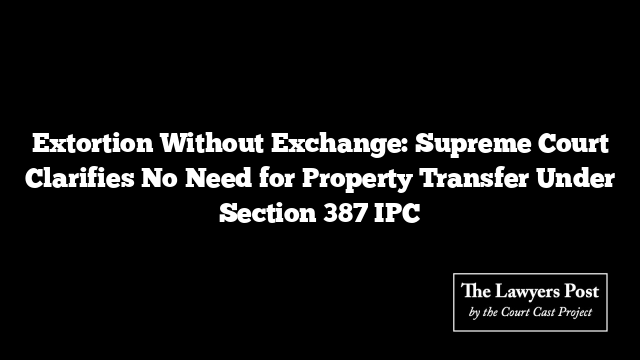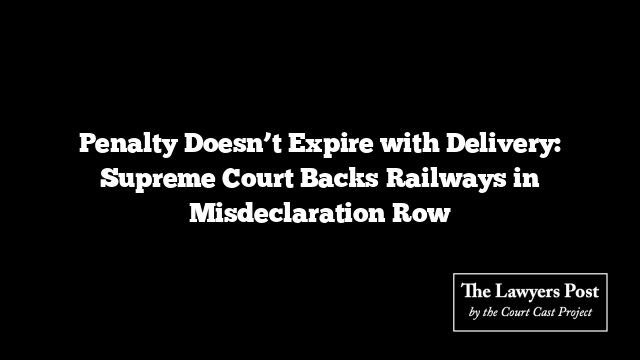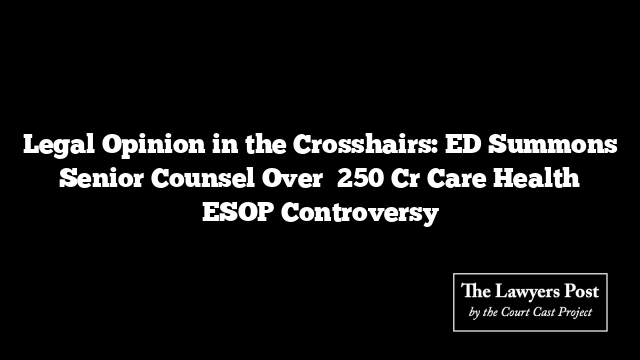In a judgment that redefines the threshold of extortion under Indian law, the Supreme Court has declared that putting someone in fear of death or grievous injury is enough to trigger Section 387 of the Indian Penal Code — even if no money or property is ultimately handed over.
The ruling came as the apex court overturned a decision of the Allahabad High Court, which had quashed a criminal summons against a group of accused in a case involving threats and a demand for ₹5 lakh per month to allow a business to operate. The High Court had reasoned that no offence could be made out since the complainant never actually paid the amount.
But the Supreme Court saw things differently.
A bench comprising Justices Sanjay Karol and Manoj Misra pulled no punches: Section 387, they said, isn’t about the success of extortion — it’s about the threat itself. Unlike Section 383, which requires actual delivery of property for the offence of extortion to be complete, Section 387 operates in a different sphere. The moment someone is placed in fear of death or serious injury with the intent to extort, the offence is made out.
The Court noted that the complainant was allegedly threatened at gunpoint and ordered to either shut down his betel nut business or start paying ₹5 lakh monthly to stay afloat. That, the Court ruled, was more than enough to qualify under Section 387.
“Putting a person in fear would make an accused guilty of an offence under Section 387 IPC,” the judgment reads. “It need not satisfy all the ingredients of extortion provided under Section 383 IPC.”
By focusing on the presence of fear and the intent behind it, the bench criticized the High Court for misapplying the law — specifically for confusing the requirements of Section 383 with those of Section 387. The Court stressed that this was not a Section 384 (punishment for extortion) prosecution, where delivery of property is essential.
Backing its position with precedent, the bench referenced Somasundaram v. State (2020), in which an accused was held liable under Section 387 even though the victim was killed before complying with the extortion demand.
With that, the apex court reinstated the complaint, ordered the case to be returned to the trial court docket, and instructed all parties to cooperate so that the matter could proceed swiftly.
In short: under Section 387, the weapon is the fear — not the payoff.





